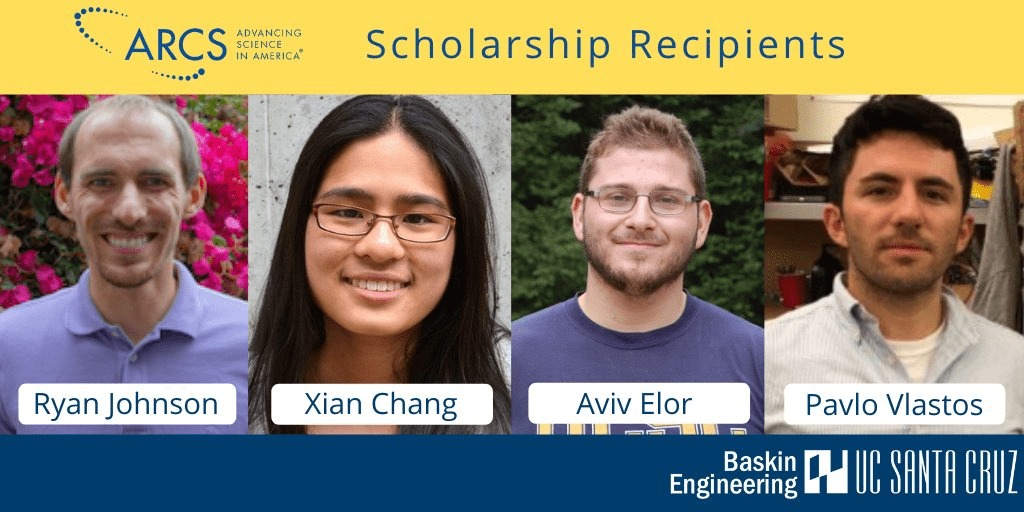Tim Stephens | UCSC | September 14, 2020
Sixteen UC Santa Cruz graduate students have received scholarships worth a total of $160,000 from the Achievement Rewards for College Scientists (ARCS) Foundation for the 2020-21 academic year. Since 1976, the ARCS Foundation’s Northern California Chapter has given more than $2 million in scholarships to UCSC students.
The ARCS Foundation, founded in 1958, is a national organization that provides scholarships and fellowships for the country’s most promising science, medical, and engineering students. This year’s ARCS scholars at UC Santa Cruz represent the Science Communication Program and the Departments of Astronomy and Astrophysics; Biomolecular Engineering; Chemistry and Biochemistry; Computational Media; Computer Science and Engineering; Earth and Planetary Sciences; Ecology and Evolutionary Biology; Electrical and Computer Engineering; Environmental Studies; Microbiology and Environmental Toxicology; Molecular, Cell and Developmental Biology; Ocean Sciences; and Physics. The scholars and their interests are as follows:
Isabella Backman, Science Communication: Backman is an aspiring science journalist with a lifelong interest in environmental issues. She has a B.S. in biology and has studied the effects of climate change on intertidal organisms and the impact of rising temperatures on the diets of juvenile Atlantic cod. She has also worked as a writer for the environmental education newsletter Ocean.
Oscar Cazares, Molecular, Cell, and Developmental Biology: Cazares is investigating the molecular pathways that regulate the fate of alveolar progenitor cells over multiple pregnancies. He hopes this research will lead to a therapeutic solution for milk insufficiency syndrome, which impacts the health of many women and children worldwide.
Xian Chang, Biomolecular Engineering: Chang is developing algorithms used to conduct genomics research. Her work aims to add genetic diversity to representations of the human genome in order to make a reference genome that is more representative of the human population. This will make the human reference genome unbiased and more useful as a reference for studying samples from diverse genetic backgrounds.

Recent Comments